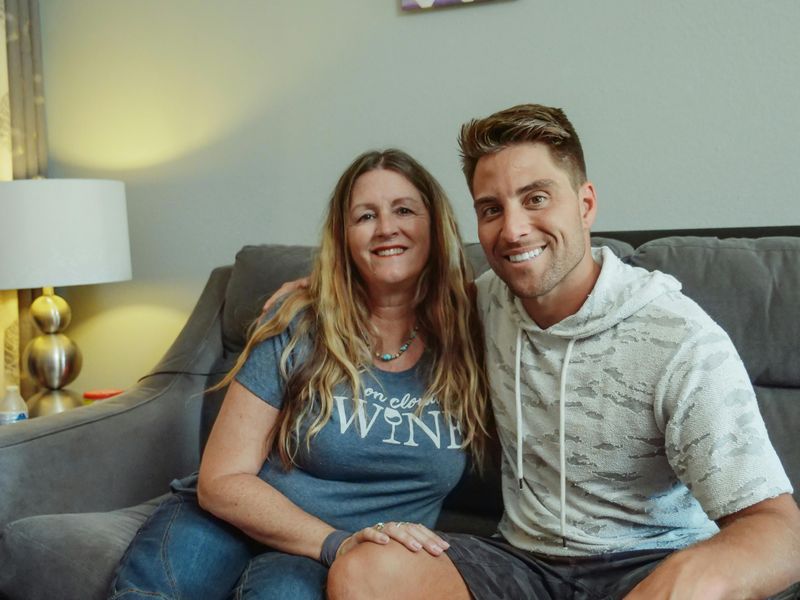Parenting doesn’t end when children grow up, but the relationship must evolve. Many parents struggle to adapt, unintentionally creating distance between themselves and their adult children. What starts as caring behavior can sometimes feel suffocating or disrespectful to grown kids. Understanding these common missteps can help parents maintain healthy connections with their adult children.
1. Constant Criticism
“Your apartment is so messy,” or “Still at that entry-level job?” are comments that seem helpful to parents but often feel like attacks to adult children. Even well-intentioned critiques create emotional distance when they become the main form of communication.
Adult children need to feel accepted, not constantly evaluated. When every conversation includes a suggestion for improvement, they’ll start avoiding those conversations altogether.
2. Not Respecting Boundaries
Showing up unannounced, reading private messages, or interrogating about personal matters – these boundary crossings signal disrespect for an adult child’s autonomy. Parents may see it as staying connected, but adult children experience it as invasive.
Healthy relationships require clear boundaries. When parents repeatedly ignore these lines, adult children create distance as self-protection. Many build emotional walls that become harder to dismantle over time.
Respect for privacy isn’t rejection – it’s acknowledgment of adulthood. Ask permission before visiting, wait for information to be shared willingly, and recognize that some aspects of your adult child’s life aren’t yours to manage.
3. Unsolicited Advice
The parental instinct to guide children doesn’t automatically shut off when kids reach adulthood. However, jumping in with solutions before being asked suggests you don’t trust their decision-making abilities.
Adult children need to develop confidence in their own problem-solving skills. When parents immediately offer directions on everything from career moves to cooking techniques, it communicates a lack of faith in their capabilities.
If you’re bursting with helpful suggestions, try asking, “Would you like my thoughts on this?” This small change acknowledges their right to decide whether advice is welcome.
4. Emotional Manipulation
“I guess I’ll spend the holidays alone again,” or “After all I’ve sacrificed for you…” These guilt-inducing statements might get immediate compliance, but they poison the relationship long-term. Adult children begin associating visits with obligation rather than joy.
Parents who weaponize guilt often don’t recognize the damage they’re causing. The short-term win of getting their way comes at the cost of authentic connection.
Genuine relationships thrive on mutual respect, not manipulation. Express disappointment honestly without the guilt trip. “I miss you and would love to see you soon” communicates the same desire without the emotional baggage.
5. Treating Grown Children Like Kids
Reminding a 30-year-old to wear a coat or questioning basic adult decisions signals an inability to see your child as a grown person. This infantilization feels suffocating and disrespectful to someone who manages their own life.
Parents sometimes get stuck in outdated roles, continuing to parent as if their child were still young. The comfort of familiar patterns blinds them to how inappropriate this dynamic has become.
6. Harmful Comparisons
“Your brother already owns a house,” or “Your cousin finished her PhD by your age.” These comparisons might seem motivational to parents, but they’re deeply hurtful to adult children who feel they’re never measuring up.
Each person’s journey unfolds at its own pace and direction. Comparing siblings, cousins, or friends’ children ignores the unique circumstances and qualities that shape individual lives.
Adult children who constantly hear these comparisons eventually stop sharing their experiences altogether. They learn that their accomplishments only matter in relation to others, not on their own merit.
7. Overlooking Achievements
The promotion that goes unacknowledged. The new skill was mastered without comment. The personal milestone was met with indifference. When parents consistently fail to celebrate their adult children’s accomplishments, it creates a painful void.
Many parents don’t realize how much their recognition still matters. They might assume adult children no longer need parental approval or miss achievements because they’re focused on their own concerns.
Taking a genuine interest in your adult child’s successes shows you value them as a person. Even small victories deserve acknowledgment. A simple “I’m impressed by how you handled that project” can strengthen your connection.
8. Dwelling on Past Mistakes
“Remember when you dropped out of college?” or references to teenage rebellions keep adult children locked in their past identities. Parents who regularly resurrect old failures prevent the relationship from evolving.
People need space to grow beyond their mistakes. When parents continuously bring up past shortcomings, they signal they’re unwilling to see who their child has become.
The college dropout might now be a successful entrepreneur. The rebellious teen might be a responsible parent. Let go of old narratives and focus on who your adult child is today, not who they were during difficult phases.
9. Persistent Negativity
Complaining about health problems, criticizing political situations, or focusing on family drama makes conversations exhausting. Adult children begin limiting contact when every interaction leaves them emotionally drained.
Parents might not realize how their negative outlook affects others. What feels like normal venting to them becomes a heavy burden for children who feel responsible for their parents’ happiness.
Adult children want meaningful connections with parents, not just complaint sessions. They’re more likely to stay engaged with parents who bring positive energy to the relationship.
10. One-Sided Relationship Expectations
“Why don’t you ever call?” Parents who expect their adult children to maintain the relationship without reciprocal effort create an unfair dynamic. The burden of connection shouldn’t fall entirely on one person.
Many parents assume it’s their children’s duty to stay in touch while making little effort themselves. They wait for visits instead of initiating them, expect calls but rarely dial out.
Relationships thrive on mutual investment. Be the one to call sometimes, suggest activities you both enjoy, and show interest in connecting. Your adult child notices whether you’re putting in effort or simply demanding it from them.
11. Judging Their Partner and Life Choices
The subtle disapproval of a partner, career path, or lifestyle creates a painful dilemma for adult children. They feel forced to choose between their parents’ approval and their own happiness.
Parents often believe they’re protecting their children from mistakes. In reality, they’re communicating that their love and acceptance are conditional upon certain choices.
Even when concerns are valid, how they’re expressed matters enormously. Approach differences with curiosity rather than judgment. “Tell me more about what you love about this job” opens a conversation, while “You could do so much better” shuts it down.
12. Financial Help With Hidden Costs
“I paid for your car, so I should have a say in where you live.” Financial assistance that comes with strings attached creates resentment rather than gratitude. Adult children feel trapped between accepting needed help and maintaining independence.
Money becomes a control mechanism when parents use it to influence decisions. What starts as generosity transforms into a power imbalance that damages the relationship.
Be clear about expectations before offering financial help. If strings are attached, state them upfront. Better yet, give freely without demands, recognizing that financial support doesn’t buy decision-making rights in an adult child’s life.
13. Withholding Approval and Pride
“I’m proud of you” – these simple words hold immense power, yet many parents rarely speak them. Adult children who never hear this affirmation often spend years seeking approval they never receive.
Some parents believe withholding praise motivates achievement. Others grew up without affirmation and don’t know how to express it. Many simply don’t realize how important their approval remains throughout their children’s lives.
Everyone needs validation, especially from parents. Expressing pride doesn’t make adult children complacent – it gives them emotional security. Be specific: “I’m proud of how you handled that difficult client” means more than generic praise.













